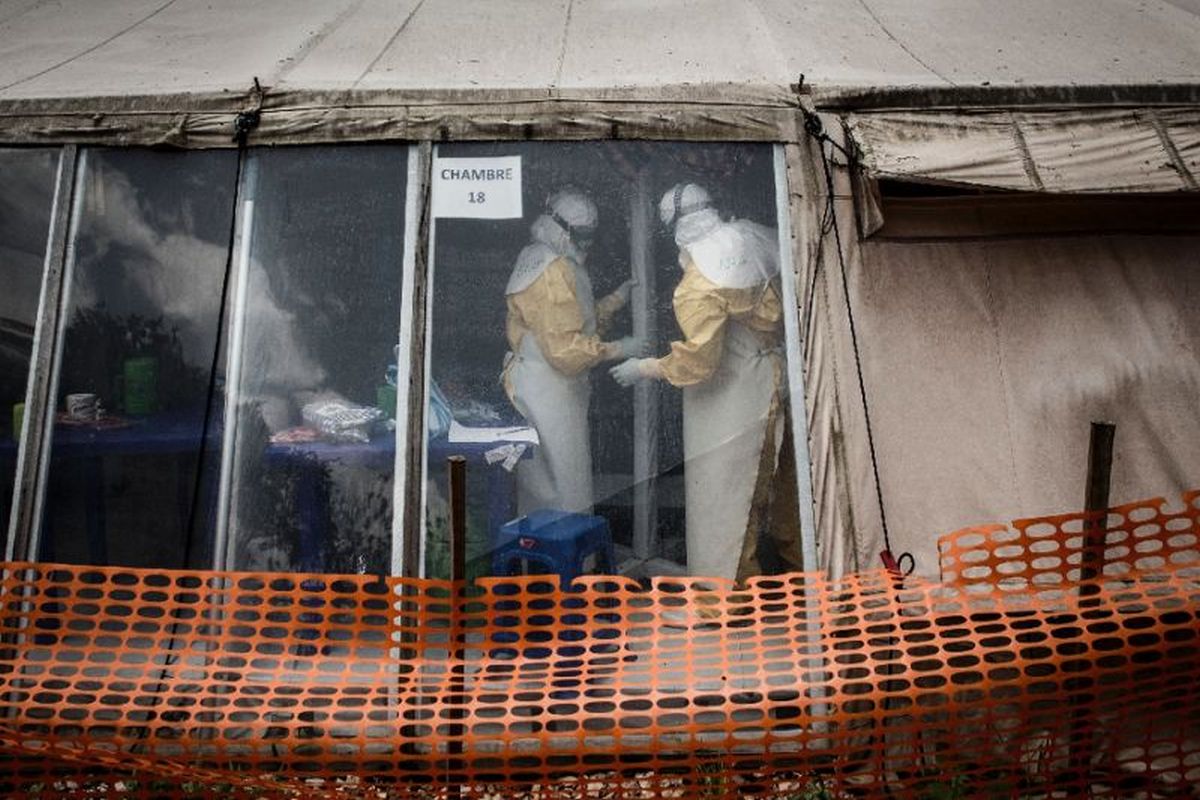The Red Cross warned Thursday that critical underfunding could force it to cut vital work to rein in the deadly Ebola virus in the Democratic Republic of Congo at a time when case numbers are soaring.
Without more funds, it would need to begin “dramatically” scaling back its operations within two weeks, Emanuele Capobianco, health director of the International Federation of the Red Cross told reporters in Geneva.
Advertisement
The organisation leads efforts to safely bury victims of the disease, which spreads through contact with blood and other bodily fluids.
“The situation is serious,” said Capobianco.
More than 1,100 people have died since the central African country last August declared a 10th outbreak of Ebola in 40 years.
A fifth of about 1,700 known and suspected Ebola infections were reported in the past three weeks alone, said Capobianco — an “alarming” rise.
Yet the Red Cross and Red Crescent organisations have received less than half of the 31.5 million Swiss francs ($31.2 million, 28 million euros) they had requested to fund the Ebola response in DRC and preparedness efforts in neighbouring Burundi, Rwanda, South Sudan and Uganda.
“The scale and quality of activities that will be performed by Red Cross volunteers will dramatically diminish within the next two weeks unless funding is provided,” Capobianco said.
The Ebola fightback is also hampered by fighting in the affected regions and attacks on medical teams, as well as locals viewing the international effort at prevention, including burials, with suspicion.
– ‘Tipping point’ –
The outbreak is the second deadliest outbreak on record after an epidemic in West Africa in 2014-2016 that infected nearly 29,000 people and killed more than 11,300.
A study conducted after that outbreak found that efforts to safely bury highly contagious bodies of those who die from Ebola may have prevented 10,500 cases and decreased the scale of the outbreak by more than a third.
Capobianco said more than 5,000 burials have been conducted since August, about 20 per day on average, adding “the containment of the epidemic depends on this.”
But the process is complex and costly.
Each burial costs about $500, covering the participation of a 12-person team, protective suits for them and grieving family members, as well as body bags and coffins.
For now, the outbreak has been contained to North Kivu and Ituri provinces, but “we are at a tipping point”, warned Capobianco, with growing fears it would spread to other regions or neighbouring countries.









